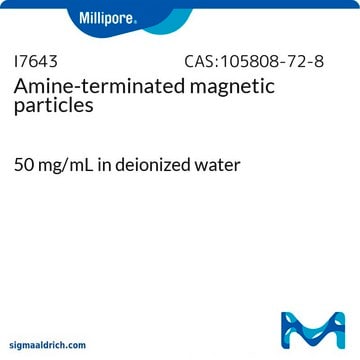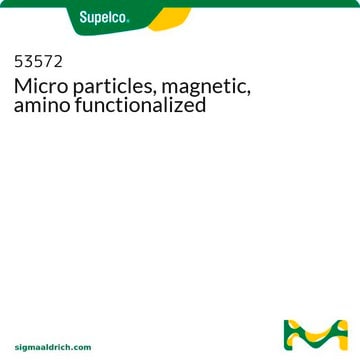743062
TurboBeads™ Complexon
extent of labeling: ≥0.1 mmol/g loading (-Ph-CH2-N(CH2-COOH)2)
Synonym(s):
Nano particles, magnetic, IDA functionalized
About This Item
Recommended Products
product line
TurboBeads™
Quality Level
Assay
≥99%
form
powder
composition
carbon content, ≤14 wt. %
reaction suitability
reaction type: solution phase peptide synthesis
reactivity: copper reactive
extent of labeling
≥0.1 mmol/g loading (-Ph-CH2-N(CH2-COOH)2)
magnetization
≥120 emu/g, mass saturation
surface area
≥15 m2/g
average diameter
≤50 nm
suitability
conforms to structure for Infrared spectrum
Packaging
Analysis Note
air-stability:
weight gain in air at 400°C >20 wt.%
weight gain in air at 100°C <3 wt.%
Legal Information
Not finding the right product?
Try our Product Selector Tool.
Storage Class Code
11 - Combustible Solids
WGK
WGK 3
Flash Point(F)
Not applicable
Flash Point(C)
Not applicable
Choose from one of the most recent versions:
Certificates of Analysis (COA)
Don't see the Right Version?
If you require a particular version, you can look up a specific certificate by the Lot or Batch number.
Already Own This Product?
Find documentation for the products that you have recently purchased in the Document Library.
Our team of scientists has experience in all areas of research including Life Science, Material Science, Chemical Synthesis, Chromatography, Analytical and many others.
Contact Technical Service






